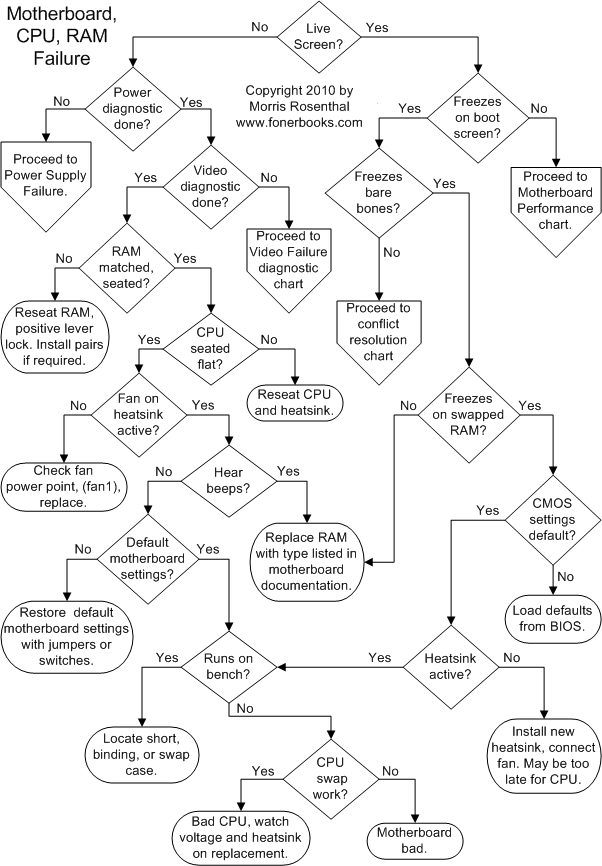32
15
I have a fairly modern desktop computer, an AMD Athlon II X2 based silent PC, that does not work.
When turned on, it will start physically (all fans are rotating, disks start up...) but not give a signal on any of the graphics ports (DVI, VGA, and HDMI, I tried all three). Also, the reset button does not seem to have any effect.
I have stripped the mainboard bare of all SATA connections, extension cards, and the one 2GB RAM chip to eliminate them as the problem source, but to no avail, so I think it's fair to assume it's either the mainboard or the processor that are at fault.
However, I have neither a replacement mainboard, nor a replacement processor handy to identify which one is broken. The cause of the defect is unknown, so for all I know, it could be both. Therefore, I'm reluctant to buy replacement hardware blindly before knowing more.
Is there any way to further diagnose (or at least get some indication) which component is broken without buying replacement hardware?

1Are your graphics on-board, PCI or both? – DMA57361 – 2011-01-04T12:25:54.883
@DMA on-board. I think I have a separate one somewhere though, I'll try that out, hadn't thought of that – Pekka – 2011-01-04T12:27:32.647